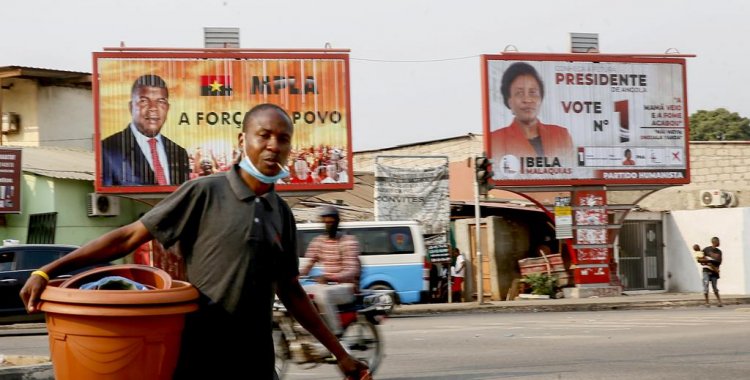The note, which does not specify how many members make up the AU's election observer mission, states that it "has as its main objective the mission of objectively evaluating, in an independent and professional manner, the integrity, credibility, regularity and transparency" of the scrutiny.
The deployment of the AU Election Observation Mission "is within the framework of the principles approved by the relevant international instruments, in particular the African Charter on Democracy, Elections and Governance (ACDEC) 2012, [and] the OAU/AU Declaration on the principles governing democratic elections in Africa".
"The 2002 African Guidelines for Election Observation and Monitoring Missions 2002 and the United Nations Declaration of Principles for International Election Observation 2005" will also guide observers.
"The mission also takes into account the regional instruments and the national legal framework that organize the elections," the note concludes.
More than 14 million Angolans, including those residing abroad, are eligible to vote on 24 August, in what will be the fifth election in Angola's history.
The 220 members of the National Assembly are elected by two methods: 130 members are proportionally elected by the so-called national constituency, and the remaining 90 seats are reserved for each of the country's 18 provinces, using the d'Hondt method, in which each one elects five parliamentarians.
Since the 2010 Constitution came into force, presidential elections have not been held, with the President and Vice-President being the first two names on the list of the most voted party in the national circle.
In the previous election, in 2017, the Popular Movement for the Liberation of Angola (MPLA) won the majority with 61.07 percent of the votes and elected 150 deputies, and the National Union for the Total Independence of Angola (UNITA) won 26, 67 percent and 51 deputies.
This was followed by the Broad Convergence for the Salvation of Angola - Electoral Coalition (CASA-CE), with 9.44 percent and 16 deputies, the Social Renovation Party (PRS), with 1.35 percent and two deputies, and the National Front for the Liberation of Angola (FNLA), with 0.93 percent and one deputy.
The National Patriotic Alliance (APN) reached 0.51 percent, but did not elect any deputy.
In addition to these political formations, the Angolan Humanist Party (PHA) and the Nationalist Justice Party in Angola (P-Njango) are in the election on 24 August.







